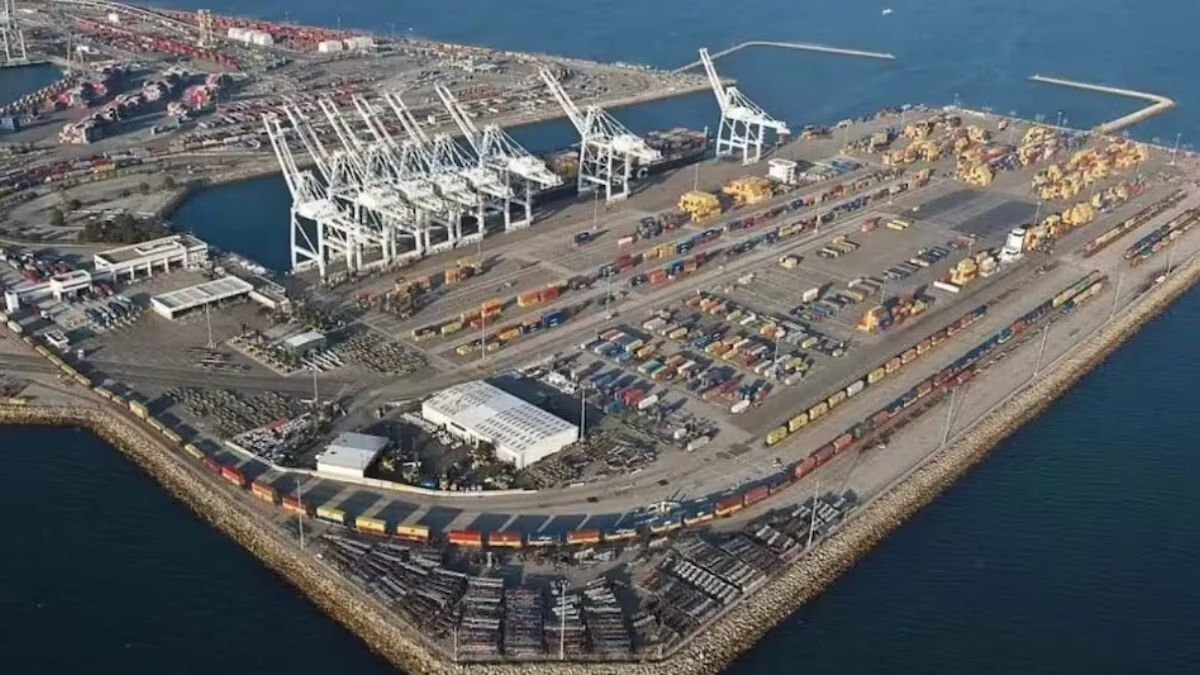The ongoing conflict between Israel and Iran is becoming increasingly dangerous, with both nations launching missiles at each other. Recent reports from Israeli media suggest that Iran has attacked the Israeli Stock Exchange and hospitals. Tehran launched more than 25 missiles against Israel, escalating the tensions with expectations of a retaliatory strike by Israel.
This conflict places India's significant $550 million (approximately 47.71 billion INR) investments at risk in Iran. India's strategic and commercial interests are primarily focused on the Chabahar Port, a vital asset operated by India Port Global Limited (IPGL). The port provides India a strategic route to Afghanistan and Central Asia, bypassing Pakistan.
The escalating Israel-Iran conflict threatens this port with potential turmoil, especially as the U.S. increases its involvement, while continuous Western sanctions complicate both the port's development and railway connectivity initiatives.
10-Year Agreement
Until May 2024, India has secured a 10-year deal for managing the Shahid Beheshti Terminal at Chabahar. IPGL, in collaboration with Iran's Aria Banader, oversees operations. Previously in 2017, private companies like Adani Group and Essar showed interest in its operations. India has heavily invested in this port's development.
India's Investment in Iran's Port
This port offers an alternative and shorter trade route for India to Iran, Afghanistan, Central Asia, and Europe. India has invested over $200 million in developing the Chabahar Port and announced plans to invest 7 billion INR in developing a terminal of the port.
Furthermore, India's investment of $85 million in berth upgrades, a $150 million Exim Bank credit line, and a separate $400 million credit line facilitating steel imports for the Chabahar-Zahedan railway are notable. Shahid Beheshti Terminal is Iran's second-largest port.
Railway Connectivity Efforts
The Chabahar-Zahedan Railway Project, under a $1.6 billion MOU, was assigned to Indian PSU company IRCON International. However, due to funding delays, Iran partially distanced itself from the project in 2020. There's a plan to link Chabahar Port with Iran's railway network by 2026.
Efforts to Establish New Trade Network
Diplomatically, India and Iran maintained regular contact to sustain progress. In January 2025, during the 19th Foreign Office Consultation, national security advisors emphasized collaborating on Chabahar and the International North-South Transport Corridor (INSTC) to establish a multimodal transportation network among India, Russia, Iran, Central Asia, and Europe.
Challenges from China and the U.S.
China also shows interest in developing the Chabahar Port, planning to link it with the Gwadar Port under its Belt and Road Initiative (BRI). Meanwhile, the U.S. has raised concerns about India's involvement in developing Chabahar Port, citing sanctions on Iran and warning about potential sanctions on businesses engaging with Iran.
There's speculation that the ongoing Israel-Iran conflict and the likelihood of increased U.S. involvement could disrupt operations in Chabahar, affecting insurance, logistics, and the INSTC corridor. Western sanctions continue to complicate both port development and railway connectivity.




